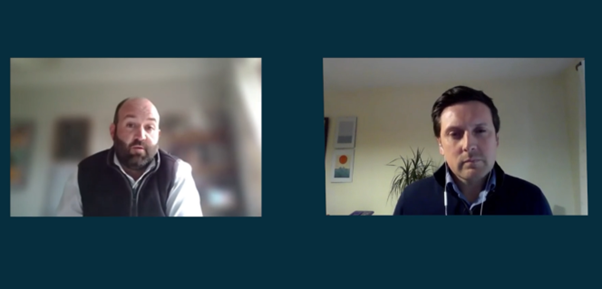In our latest Impact Chat, Social Invest Director, Luke Cross, spoke to David Willock, Managing Director, ESG Finance at Lloyds Bank. David has a wealth of experience in sustainable investment and is currently involved in the UK Green Building Council’s member advisory group.
Below are some of the key talking points discussed in the webinar.
Language of ESG needs to be simplified
David explains that the ESG movement has come a long way but warns that it risks being lost on important stakeholders due to what he described as “alphabet soup”.
“We are just creating loads of jargon, which can be repetitive and distract from what we are here to do and can be non-inclusive,” he says.
David says that the inaccessible language around ESG can create friction and put off the exact groups that investors are looking to influence.
Need to maintain momentum on ESG
Since the early days of ESG, the agenda has gone from “a fringe festival to the main stage,” David notes.
But now there is a challenge around maintaining the momentum around ESG.
He says: “I think, lots of practitioners thought won the battle in that sense of getting [ESG] up the agenda […] but I think we need to dust some of that off again remember why we’re doing this particular topic.”
Policy and data need to move forward
The conversation also covered some potential barriers preventing the advancement of ESG outcomes. David explained that there are sticking points with the measurement of certain as well as an uncertain policy landscape.
He touches on the questions around the validity of EPC ratings and highlights the need to “get hold of EPC data between the tenant and landlord”.
David also points to policy issues which are impacting what can be planned for and achieved in the built environment sector.
He says: “Our clients say we need some clear policy direction, around minimum standards. And then we’ve got the whole technology bit as well. We know some of the technology works and others don’t, so we just need to have a clear schedule around technology.”
Consolidate the number of frameworks
David explains that Lloyds’ commitment to ESG reporting and highlights a number of standards and frameworks that the bank both reports against and uses to analyse others.
However, he suggests that the sharp rise and fast-moving nature of the industry means we are left with several overlapping and competing standards.
He explains: “There’s too many frameworks – we need to bring them all together. There needs to be further combinations and mergers.”
Banks will ask for more information
A theme of the conversation with David was the speed at which ESG is moving and how far it has come.
As a result of this progression he notes that when it comes to ESG reporting, organisations need to always be looking at what is coming down the road to stay ahead of the curve.
“You will see banks, because of their own commitment, asking for more and more information,” he says.
Click here to watch the Impact Chat in full.



